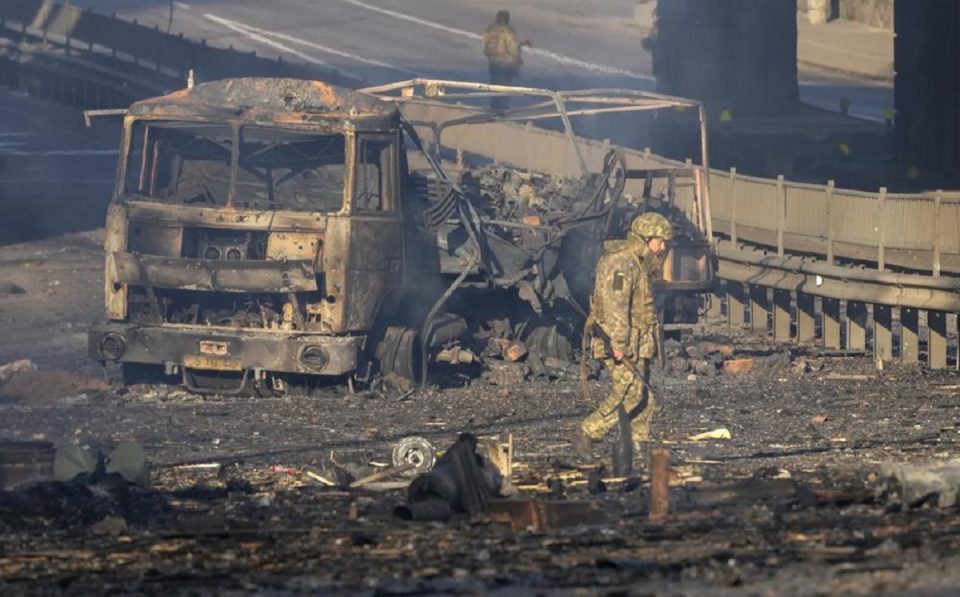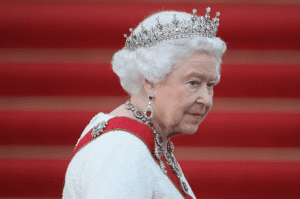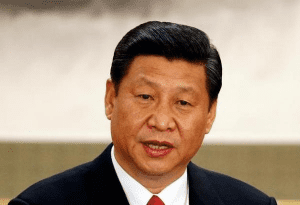
Top 10 events of 2022 that shaped, shook or brightened the world
The year 2022 was dramatic in several respects. From a war to crises to uprisings, the world saw it all. Here are 10 significant events that shocked or rocked the world in the year we are leaving behind

The year we leave behind was not one the world would love to remember with fondness. A deadly war broke out in Ukraine; Britain lost its familiar face of royalty before being rocked by a political and economic crisis; the desperate people of Sri Lanka booted out their president after suffering for months; Iranians put their lives at stake to protest against an oppressive government; and last but not least, the familiar comfort of social media went haywire with Elon Musk taking over Twitter.
We have listed the top 10 events that we believe shaped or shook the world in 2022.
10. Queen Elizabeth II, the longest-serving British monarch, passes away

Millions mourned in Britain — and all over the world — when Queen Elizabeth II, the longest-serving British monarch, died on September 8 at Balmoral Castle in Scotland on September 8.
Her death ended the longest reign in the history of the United Kingdom, and one of the longest by any head of state. Elizabeth II, who became Queen on the death of her father King George VI on February 6 1952, reigned for 70 years, seven years more than Queen Victoria did.
She was 96 and suffering from age-related health issues. Her husband and King consort, Prince Philip, the Duke of Edinburgh, passed away on February 6, 2021, due to age-related ailments, two months before his 100th birthday.
Queen Elizabeth II was known as one of the “coolest” British monarchs. From serving as a mechanic and truck driver in the last months of World War II (as princess) to joining Daniel Craig as James Bond in a comedy sketch at the opening ceremony of the 2012 London Olympics, she did it all.
Watch: UK bids adieu to Queen Elizabeth II with state funeral
With her death, her eldest son, Charles, the former Prince of Wales, was anointed as King and will be officially known as King Charles III. He was the oldest and longest-serving heir-apparent in British history. At 73, Charles will be the oldest person to become King in British history.
The coronation of King Charles III is scheduled to be held on May 6, 2023.
9. Brazil shifts to the Left with national elections
 World politics, which was rather skewed towards the Right for several years, has started leaning Left again. After the Democrat win in the US last year, the most crucial of Left victories in 2022 was that of Luiz Inácio Lula da Silva in Brazil on October 30, ending far-right leader Jair Bolsonaro’s controversy-riddled term.
World politics, which was rather skewed towards the Right for several years, has started leaning Left again. After the Democrat win in the US last year, the most crucial of Left victories in 2022 was that of Luiz Inácio Lula da Silva in Brazil on October 30, ending far-right leader Jair Bolsonaro’s controversy-riddled term.
Dramatically, Lula da Silva went from prisoner to president in just three years. He was jailed in April 2018 after being convicted in a corruption scandal. After being imprisoned for about a year and a half, he was released in 2019 when Brazil’s Supreme Court found that the previous judge in the case was biased and annulled his conviction.
Lula da Silva won by a razor-thin margin, polling 50.9% of the votes compared to 49.1% for Bolsonaro, in one of the country’s tightest presidential races. He will be officially sworn in for a four-year term on January 1, 2023. Lula da Silva will have a tough task on his hands getting the country back on track.
8. World population crosses 8 billion

The world population touched 8 billion on November 15, with India being the largest contributor to the milestone, according to the United Nations (UN). India added 177 million to the final score.
Vinice Mabansag (in picture), a girl born in Tondo, Manila, was considered as the symbolic 8 billionth person — symbolic because it is hard to calculate the exact number of people in the world.
India has another distinction to look forward to in 2023 as well, when it is expected to surpass China as the world’s most populous nation. China’s contribution to the next billion in the global population is projected to be in the negative, says the UN.
It took the world 11 years to add one billion people to the population, with growth gradually slowing down. According to the UN, it could take 15 years to reach nine billion, and it does not expect the figure to reach 10 billion until 2080.
More than half of the projected increase in the global population up to 2050 will be concentrated in eight countries: the Democratic Republic of the Congo, Egypt, Ethiopia, India, Nigeria, Pakistan, the Philippines, and the United Republic of Tanzania.
For the increase from 7 to 8 billion, around 70 per cent of the added population was in low-income and lower-middle-income countries. For the increase from 8 to 9 billion, these two groups are expected to account for more than 90 per cent of global growth, says the UN.
7. COP27 and the landmark compensation fund
 For the first time, first-world nations have decided to pay for the damage an overheating world is inflicting on poor countries by establishing a fund for “loss and damage.” The landmark decision was taken at the UN climate summit in Egypt’s Sharm-El-Sheikh in November.
For the first time, first-world nations have decided to pay for the damage an overheating world is inflicting on poor countries by establishing a fund for “loss and damage.” The landmark decision was taken at the UN climate summit in Egypt’s Sharm-El-Sheikh in November.
India termed COP27 “historic” for securing the agreement, saying “the world has waited far too long for this.” However, the outcome on other crucial issues, such as India’s call for a phasedown of all fossil fuels, showed little progress.
It was a big win for the poorer nations, which have long called for cash — sometimes viewed as compensation — because they often fall victim to devastating floods, droughts, heat waves, famines, and storms caused by climate change despite having contributed little to it.
The G77 and China (India is part of this group), least developed countries, and small island states had put forward the proposal for a loss and damage fund. Vulnerable countries had said that they would not leave COP27 without it.
The conference agreed to set up a “transitional committee” to decide how the money will be provided and who will contribute to the fund. Its recommendations will be discussed at COP28 next year. However, how much is ultimately done on the ground remains to be seen.
6. Elon Musk takes over Twitter

After a legal battle, billionaire Elon Musk finally bought Twitter for $44 billion in October. The eccentric business tycoon took control of Twitter on October 28 after firing its top executives, CEO Parag Agarwal, CFO Ned Segal, and head of legal policy, trust and safety, Vijaya Gadde. And then started Twitter’s run of misfortunes and controversies.
After completing his acquisition, Musk tweeted, “Let the good times roll” and “The bird is freed.” However, Twitter employees are yet to see those “good times” as Musk started firing them left, right, and centre. Some reports said he planned to fire 75% of the staff even as he threatened them that the company could go bankrupt.
He asked employees to work overtime and raised hackles by announcing a fee for Twitter’s blue tick authentication. After claiming he was all for free speech, he reinstated the accounts of far-right politicians such as former US President Donald Trump, while suspending the accounts of journalists on a flimsy pretext. However, after a Twitter poll, he reinstated the latter’s accounts.
Since the takeover, Musk has kept the world on tenterhooks, as more and more people leave the microblogging site, displeased with some announcement or the other.
5. UK gets its first Indian-origin PM
 The UK had a most dramatic 2022, what with losing its beloved Queen and having three Prime Ministers in one year. The drama started with former Prime Minister Boris Johnson resigning on July 7 after facing a string of scandals. Liz Truss was named the new Conservative leader after a fierce leadership battle in which Indian-origin MP Rishi Sunak came in second.
The UK had a most dramatic 2022, what with losing its beloved Queen and having three Prime Ministers in one year. The drama started with former Prime Minister Boris Johnson resigning on July 7 after facing a string of scandals. Liz Truss was named the new Conservative leader after a fierce leadership battle in which Indian-origin MP Rishi Sunak came in second.
She took charge on September 6 with her grand promises of tax cuts, but things went downhill soon after. Thanks to her unfunded tax-cutting policies, markets nosedived, turning many Tory MPs against her. In a desperate bid to save her sinking ship, Truss sacked her trusted aide Kwasi Kwarteng — ironically, for enforcing her own economic policies as Chancellor of the Exchequer — and roped in Jeremy Hunt for the post.
However, the ship could not be saved and, finally, Truss resigned in October. As widely anticipated, Sunak won the Conservative Party leadership race unopposed and was sworn in on October 25 when King Charles III invited him to form a government.
As the UK got a new PM, India rejoiced the most, as Sunak became the UK’s first PM of Indian origin. He also became the country’s first leader of colour after being chosen to lead the Conservative Party on Diwali evening. Plus, at 42, Sunak became the youngest UK PM since 1812.
4. Iran uprising against hijab mandate

Leaders of the Islamic Republic of Iran saw in 2022 perhaps the most vociferous challenge to their rule since coming to power in 1979.
Protests have been raging across Iran since September 16, when the country’s notorious morality police killed Mahsa Amini, a 22-year-old Kurdish-Iranian woman, in custody for not wearing her hijab properly. The Islamic republic labelled the protests “riots” and deployed security forces.
Iranians, cutting across social, class, and ethnic lines, marched to the slogan, “Women, life, freedom,” and many women adopted the political symbolism of cutting their hair in public — a statement against oppression and one in honour of Amini.
Since then, Iranian forces have killed at least 448 people, according to Oslo-based group Iran Human Rights. The protestors earned a victory when Iran disbanded its morality police in early December. Hopes are rife that these protests could be the harbinger of a bigger revolution that could overthrow Iran’s repressive government. Will that happen? 2023 will tell that story.
3. Xi Jinping’s record third term in power

Chinese President Xi Jinping on October 23 cemented his place in history as the nation’s most influential leader since Mao Zedong after being re-elected for an unprecedented third term as the General Secretary of the Communist Party of China (CPC) and, by default, the president of the country.
The 69-year-old Xi became the first leader of the ruling CPC after founder Mao Zedong to get re-elected for a third term, with the prospect of ruling China for life. Xi’s third term ended the decades-old rule followed by his predecessors — barring Mao — of retiring after a 10-year tenure.
Xi’s emergence as the Chinese President, CPC leader, and head of the military, with the prospect of ruling for life, is viewed with unease and concern, as the one-party state gradually becomes a one-leader state.
With Jinping’s rise, China’s hostilities with countries in the Asia-Pacific region, including India, have increased as well. At the recent G20 summit in Indonesia, he was caught in an ugly face-off with Canadian Prime Minister Justin Trudeau over something they did not agree on. Very recently, Chinese forces tried to encroach upon Indian territory in Arunachal Pradesh.
The world, and especially India, will watch with bated breath how things unfold in 2023.
2. Sri Lanka’s scorching economic crisis

The Sri Lankan economic crisis started mostly as a fallout of the COVID-19 pandemic. Since about mid-2021, economic conditions started growing difficult for everyday Sri Lankans. Fuel and cooking gas became increasingly expensive and difficult to get as inflation soared. The government clamped import bans.
By the time protests began in the nation in April, things had come to such a pass that schools had been shut, basic food items had gone out of the reach of the common man, and long power cuts had become the norm. Even life-saving medicines were nearly out of stock, said Sri Lanka’s doctors.
Thousands demanded the resignation of then President Gotabaya Rajapaksa, whose government was blamed for the persistent mismanagement of the country’s finances. Finally, on July 9, protestors stormed Rajapaksa’s home, forcing him to flee the country before resigning.
Ranil Wickremesinghe became the new president, and Rajapaksa has since returned to the island nation, which is still in the process of setting things right.
1. Russia’s invasion of Ukraine
 The most significant world event of 2022 would have to be Russia’s invasion of Ukraine. Insecure over Ukraine’s growing closeness to NATO members, Russia on February 24 launched what it called a “special military operation” to force the “demilitarization and denazification of Ukraine.”
The most significant world event of 2022 would have to be Russia’s invasion of Ukraine. Insecure over Ukraine’s growing closeness to NATO members, Russia on February 24 launched what it called a “special military operation” to force the “demilitarization and denazification of Ukraine.”
Nobody expected Ukraine to withstand the Russian onslaught for too long, but it has been nearly a year and it is still fighting on. Indeed, it liberated captured territory (Kharkiv and Kherson) and turned back Russian forces, forcing Moscow to abandon its plans to take Kyiv. Ukraine’s president Volodymyr Zelenskyy, who is a former comedian-actor, became an unlikely hero of the war.
Thanks to the war, the world struggled with supply disruptions, price shocks, and food shortages. As people kept hoping for a ceasefire, 2022 has ended with its possibility looking bleak. Will 2023 bring better news? Let’s hope for the best.


